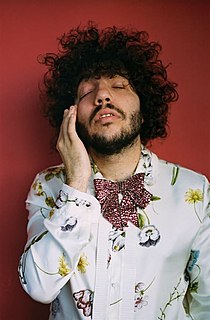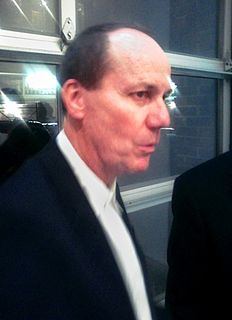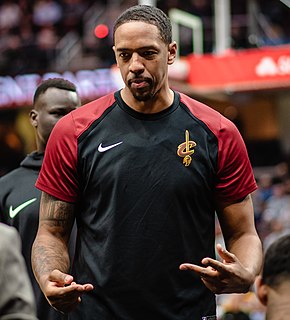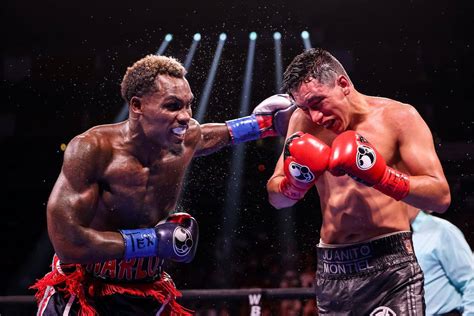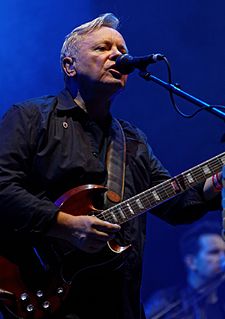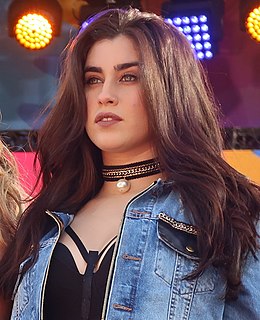A Quote by Nina Dobrev
I think that when people start hanging around each other, they start to pick on on each other's quirks and taste in music, apparently.
Quote Topics
Related Quotes
We have to start thinking of America as a family. We have to stop screeching screeching at each other, stop hurting each other, and instead start caring for, sacrificing for and sharing with each other ... We cannot move forward if cynics and critics swoop down and pick apart anything that goes wrong, to a point where we lose sight of what is right, decent and uniquely good about America.
Even if someone doesn't look like you or you don't know people like this in your real life, you get to know them and you get to see their humanity and you get to empathize with them. Our hope is that through empathy that can spark change. We hope people start talking to each other and our show sparks conversation because we need to start talking to each other, not at each other.
I think with success you do get a little more guarded and you start to change your friends. You become more isolated. And you start hanging around with people who have money! I think that's the biggest thing. Once you do get a bit of change in your pocket, you start hanging around with other people who have some change. It was kind of strange to all of a sudden go from one extreme-Manhattan-to where I went, upstate New York. But I did it because I was dying in the city. I couldn't take it. I couldn't take one more dinner party. I couldn't take one more party, period.
When you label somebody and put them in a box, then you put the lid on the box, and you just never look inside again. I think it's much more interesting for human beings to look at each other's stories and see each other. Really see each other and then see themselves through other people's stories. That's where you start to break down stereotypes.
We wouldn't have anything to prove fighting each other. And I'm pretty sure the fans and the people around the world wouldn't want to see twin brothers that train with each other and have the same tactics fight each other. So I'm not really entertaining the fact that a lot of people have been asking will me and my twin brother fight each other. No.
The music certainly plays a major role. You can be free enough to comfort each other, to touch each other, to embrace each other, to engage each other, to not be afraid of each other. The music certainly has that very strong element. Go back to folk songs, gospel, jazz, and spirituals. See, all of that came out of tremendous pain and hurt, rejection, loss, alienation, and abandonment. What I'm doing is I'm expressing my pain and hope at the same time.
Peer attachments are not the problem themselves. It's when they compete with adult attachments that the problems emerge. It's just like when siblings get attached to each other. If they start revolving around each other, then the parents can't do anything with them because it's a competing attachment.
I think the most important thing about dance music is the connection. If you put 80,000 people together, no one knows each other, and once the music starts, everyone loves each other. That doesn't happen with a lot of genres. If you go to a hip-hop club, it's not like when one songs comes on that everyone suddenly loves each other.
We think of music as this substance that flows - you turn on the tap, and there it is, streaming off your computer - but that's not how we evolved as a species. We evolved to listen to each other, and the reason we're able to listen to music in the terms is talking about is because we're really good at listening to each other. But this kind of technology has allowed us to forget that music is the sound of each other.
There never is any such thing as one truth to be found in dramatic art. There are many. These truths challenge each other, recoil from each other, reflect each other, ignore each other, tease each other, are blind to each other. Sometimes you feel you have the truth of a moment in your hand, then it slips through your fingers and is lost.


